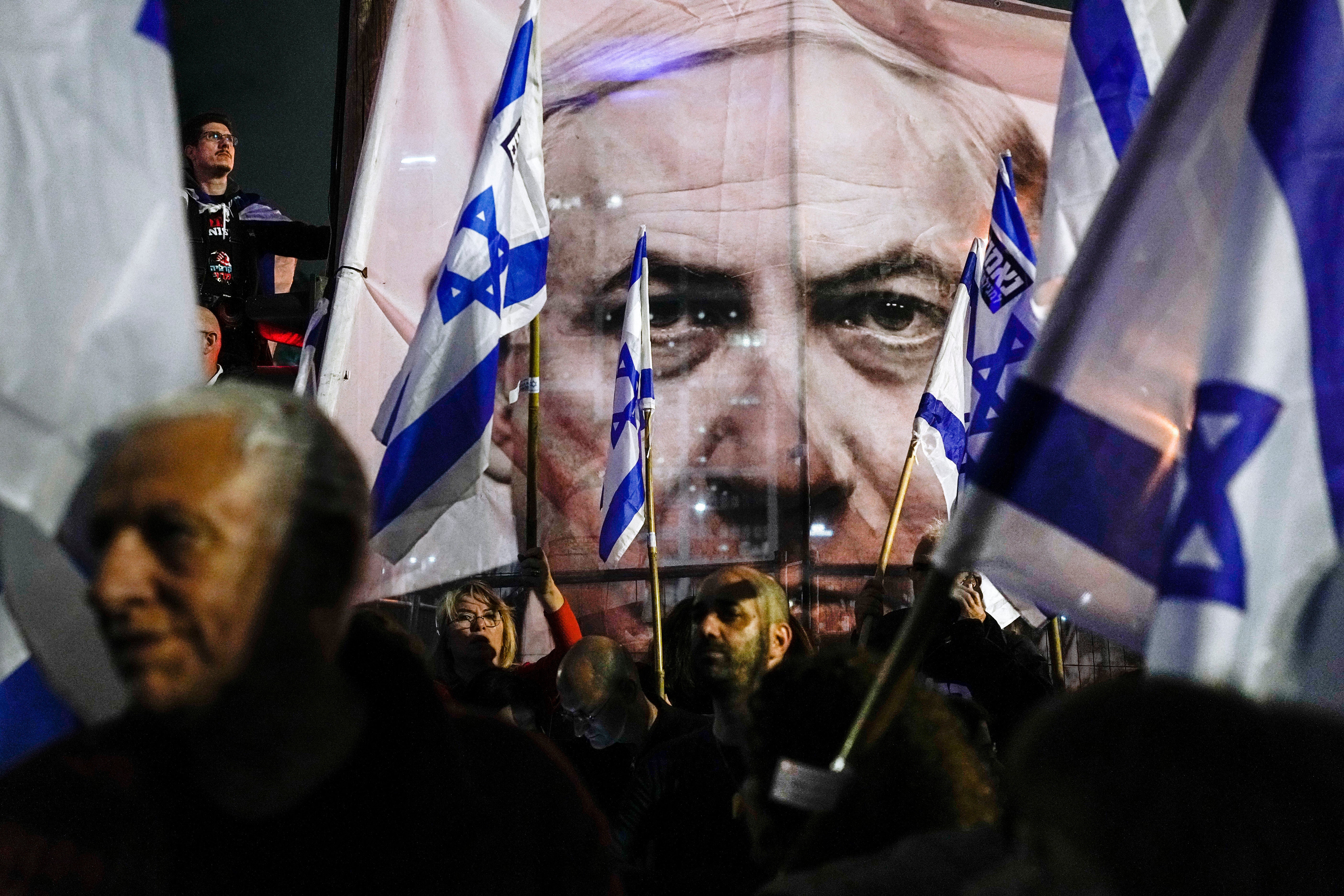The Independent's journalism is supported by our readers. When you purchase through links on our site, we may earn commission.
Israelis are reminding us that protests can work – but they’re not a cure-all
History shows that while popular demonstrations can effect change, there is often a backlash


Your support helps us to tell the story
From reproductive rights to climate change to Big Tech, The Independent is on the ground when the story is developing. Whether it's investigating the financials of Elon Musk's pro-Trump PAC or producing our latest documentary, 'The A Word', which shines a light on the American women fighting for reproductive rights, we know how important it is to parse out the facts from the messaging.
At such a critical moment in US history, we need reporters on the ground. Your donation allows us to keep sending journalists to speak to both sides of the story.
The Independent is trusted by Americans across the entire political spectrum. And unlike many other quality news outlets, we choose not to lock Americans out of our reporting and analysis with paywalls. We believe quality journalism should be available to everyone, paid for by those who can afford it.
Your support makes all the difference.“How can so many demonstrations accomplish so little?” The Atlantic’s Moisés Naím asked despairingly in 2014. He might be startled at current developments in Israel.
There, Prime Minister Benjamin Netanyahu’s proposed judicial reforms have sparked massive and consequential protests. The reforms would remove judicial checks on the legislature and executive; many Israelis have said it would effectively impose a dictatorship. Tens of thousands of people have been blocking streets and demanding Netanyahu’s resignation. On Monday he finally agreed to delay the judicial changes.
This is not the first example of effective protest in recent history. Puerto Rico Governor Ricardo Rosselló was forced out of office in 2019 after massive street demonstrations against a range of corruption scandals. France is currently paralyzed by protests against raising the retirement age. Further back, the Civil Rights Movement used protests to highlight racial injustices and spurred legislation which ended legal segregation and disenfranchisement of Black people in the Jim Crow era.
Yet, despite such obvious successes, many people still denigrate protests and question its effectiveness. The public is generally skeptical of mass demonstrations in the US. Since the 2020 George Floyd protests against police brutality, Republicans have pushed laws allowing motorists to run over protesters without legal consequences. Democratic politicians like Barack Obama are much more positive about protest — though they often caution at the same time that protestors need to vote, as if worried that demonstrations will somehow distract people from democracy.
Part of the reason that protest seems futile in the long term is because of how powerful and transformative it can seem in the moment. Large scale protests are a massive rupture in the status quo, when anything seems possible. In Israel, military reservists have been saying they would refuse to serve if the judicial reforms were pushed through. That’s unprecedented, and on Sunday Defense Minister Yoav Gallant raised concerns about Israel’s security and recommended delaying the reforms. Netanyahu fired him, escalating the crisis. The largest trade union with 700,000 workers in health, transit, banking, and other fields struck. Israel’s Consul General in New York resigned.
The protest united the military, elite diplomats, and trade unions. That’s a stunning coalition. And yet, at the end of the day, they’ve only managed so far to delay the reform package. Netanyahu is still in power. Israel’s ongoing mistreatment of Palestinians has not even really been questioned. Protests have shaken the state to its core. But entrenched power structures are, by definition, entrenched and powerful. Forcing them to even limited concessions is difficult. Those concessions are important and to be celebrated. But they can also feel like a let down.
You can see that dynamic in US protest, too. The 2020 George Floyd antiracist protests, with half a million people in the streets at least, may have been the biggest demonstrations in US history. Those protests won important concessions. Cities like Minneapolis and Boston cut millions from their police department budgets and put the money into mental health services, housing, and public health — a shift in funds that was a key protest demand.
There has also, though, been a determined backlash. Republicans and conservative Democrats like New York mayor Eric Adams have pushed alarmist and misleading stories about escalating crime in order to argue for funding more police — even though there’s little evidence that more police reduce crime. Currently, Atlanta is pushing through a $90m police training centre on public land. Dubbed “Cop City”, it’s become a painful symbol of how police hoover up resources that could go to education, health, housing, or investment in marginalized communities. Demonstrations have been intense, and police have already killed one protester, Manuel Esteban Paez Terán. They’ve also made a lot of dubious arrests.
The violent pushback against protesters by police and those in power is an indication that authorities know that protest can cause change, and fear it will do so. Yet, at the same time, that pushback is often effective. When protesters are joined by solidarity from unions, politicians, diplomats, and a broader public, they can sometimes overcome opposition and make the status quo listen. Sometimes, though, they can’t.
Protest is a tactic — not a magic wand, and not a solution. In that, it’s much like the courts or persuasion via media, or mutual aid, or even voting. Remember in 2016 when most people in the country voted against fascism, but the fascist got elected anyway? There’s no one sure way to ensure progressive change, in part because there are a lot of forces arrayed against progressive change. Israel’s current protests remind us what’s possible — and also remind us that every step towards the possible requires a great deal of effort, and a willingness to fight even though you know you may fail.



Join our commenting forum
Join thought-provoking conversations, follow other Independent readers and see their replies
Comments